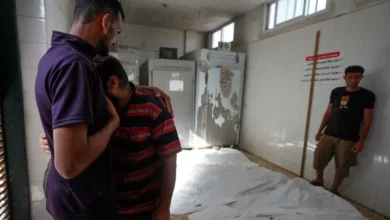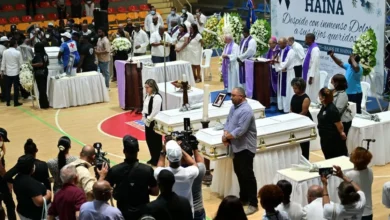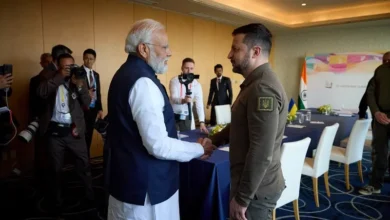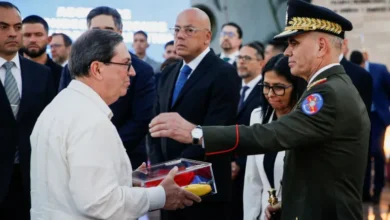Biden says Netanyahu not doing enough to secure Gaza ceasefire deal

In what is still a rare public criticism of Benjamin Netanyahu, United States President Joe Biden has said that the Israeli prime minister is not doing enough to finalise a Gaza ceasefire deal.
Biden told reporters outside the White House on Monday that the US is “very close” to presenting a final proposal that would lead to the release of Israeli captives in Gaza.
Asked why he thinks this push would succeed when other attempts to bring about a ceasefire in Gaza have failed, Biden said: “Hope springs eternal.”
The US president then answered with a simple “no” when a reporter asked him whether Netanyahu is doing enough to secure a ceasefire agreement with Hamas.
Despite the Biden administration attempting to put some distance between itself and Netanyahu over the past few months, amid the unpopularity of Israel’s war on Gaza among Democrat supporters in particular, the criticism is one of the most overt made by the US president – even if it was brief and apparently off the cuff.
Biden met with the US team negotiating the captive release deal after he made his comments on Monday, and received an update on the status of the discussions, the White House said.
The renewed US effort to reach a ceasefire comes two days after six Israeli captives – including one American citizen – were found dead in Gaza.
The discovery has fuelled mass protests and strikes across Israel demanding a deal to free the nearly 100 Israelis who remain held by Palestinian groups in Gaza.
Meanwhile, Israel has continued its brutal blockade and relentless bombardment of Gaza, which has killed more than 40,700 Palestinians.
The US is Israel’s main weapons supplier and diplomatic ally. Since the start of the war in October, Washington has vetoed three United Nations Security Council proposals that would have called for a ceasefire in Gaza. It abstained on another vote in March demanding an immediate ceasefire.
Biden’s assertion about Netanyahu on Monday appears to contradict statements by his aides, who have blamed Hamas solely for the failure to reach a deal.
Ceasefire talks
The initial US-backed plan would see a multiphased effort to end the war, starting with a six-week pause in fighting that would enable the release of some Israeli captives held in Gaza and Palestinian prisoners in Israeli jails.
In the second phase, there would be a permanent end to the fighting and the release of all remaining Israeli captives. The final part of the agreement would include the reconstruction of the Gaza Strip, which has been devastated by the Israeli war.
On August 19, US Secretary of State Antony Blinken said that Netanyahu had “accepted” the US bridging proposal and Hamas must do the same – an assertion echoed by other US officials.
Still, Netanyahu has insisted that Israel must hold on to the Philadelphi Corridor – the Palestinian side of the border between Gaza and Egypt.










